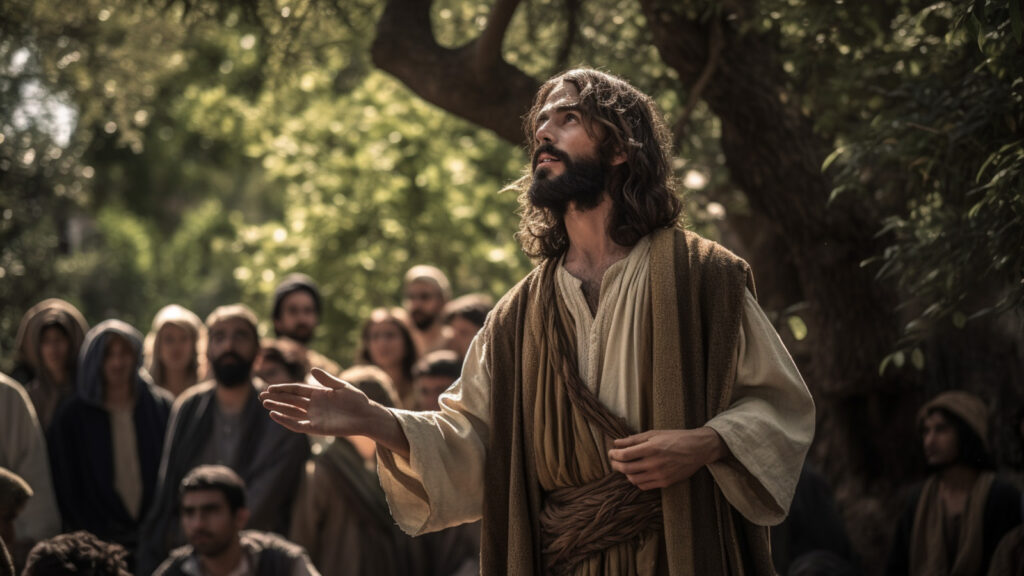I have a friend who, every time he sees a whale, texts me saying, “I JUST SAW A WHALE!!!” That might not seem like much, but I live by the Humpback Highway where thousands of whales pass each year to warmer waters. Keep your eyes on the horizon for five minutes and you’re bound to see one breach. These whale notifications therefore come in as frequently as fake postmen texts saying I have a delivery arriving and overseas numbers advising me to upgrade my electricity. At times I’ve even responded to said messages, “Oh . . . just another whale text.”
But when I stop to think about it, it’s quite admirable. While many others run by and cease to look out at the water, my friend is still able to find excitement over something that—at least where we live—is quite a common sighting.
We see this kind of joy in children all the time, and we admire it in them as we grow older. We watch them scream with wide eyes over bubbles or sand or a bird on the fence, and we can’t help but laugh at their response. As we age, many things war against these moments, and we become dulled to all the small pleasures life has to offer. We get busy, take on responsibilities, experience hurt and worry about the world around us. It’s not that we forget about pleasure. We just tend to gravitate towards the large, momentary kind like holidays, fancy meals, thrills and gadgets.
There are many things that, if I stopped to pay attention to, could bring me joy at little cost and effort: a smile from a stranger, rain on a tin roof, patterns on leaves, rocks you can sink into, the crack of a watermelon, the reflection of the moon on the water. Like a child who screams, “Wow! Do it again!” is how I should respond. But often, I’m distracted by life, and I pass on.
It makes me wonder about God’s response to the things of creation. Does He make each sunrise like we make our beds, or does He delight in each one like a child with a new pack of crayons? Does He point to stars that fly through the sky, or is His head in His hands with all there is to do? Does He swoon at the spray of an ocean wave, or did He make the mountains like we mow our lawns?
After suffering a massive stroke, Jean-Dominique Bauby, editor of a French fashion magazine, found himself completely paralysed, mute and half deaf. Letter by letter, with his one functioning eyelid, he dictated to a nurse a memoir called The Diving Bell and the Butterfly. As he lay in hospital for the remaining few years of his life, he recalled moments he longed to experience again: a cup of milky tea in his hands; deep armchairs; fish straight from the water; manoeuvring the bath taps with his toes; a simple soft boiled egg; cradling his children in his arms; stairways down to the beach that are now dead ends; the ability to return an “I love you.” Though his life was now deprived of most pleasures and was what he described as “a jellyfish existence”, Jean continued to find small treasures. The final words he dictated in his memoir just two days before he died were, “We must keep looking.” Even though confined to a hospital bed, Jean could still appreciate the sight of the sea out his window and a friendly hand stroking his numb fingers.
So often, struggle clouds our eyes and hinders us from enjoying what’s around us. During COVID-19, Yale University released a course called “The Science of Well-being”, designed to give people tools to increase their happiness. One psychological tool was called “savouring”, which means to step outside of an experience and review and appreciate it. The challenge was for people to pick one experience to savour every day, whether it be as small as a nice shower or a walk outside. They were then to share the experience with another person or think about how lucky they were to enjoy the moment. Studies have shown that savouring moments enables us to notice and enjoy more of life’s experiences, helps us cope with stress and even increases our creativity.
It’s no coincidence the Bible tells us to “taste and see that the Lord is good” (Psalm 34:8), and when we’re waiting on something or need strength to “see the goodness of the Lord in the land of the living” (Psalm 27:13,14). We’re not instructed just to read and believe but to experience and know God by paying attention to the gifts He gives daily. Doing this provides more than just a few seconds of enjoyment. From it, we cultivate an attitude of worship, admiration and thankfulness, and we grow in our ability to see good and to see God. As author Tish Harrison Warren says in Liturgy of the Ordinary, “We must take up the practice—the privilege and responsibility—of noticing, savouring, revelling, so that, to use Annie Dillard’s phrase, ‘creation need not play to an empty house’.”
My guess is that our God is not a boring God. That He not only delights in the little things, but He also delights in our delight in them. We cannot deny that life can be hard. But the small joys around us can be a resting place for hope and sustain us in what can sometimes seem like a sea of disappointment. We can appreciate a knowing look from our pet and be reminded that God sees us. We can look at the paint strokes on a seashell and know that He is full of detailed care. We can feel the grass between our toes and be reminded that He so wisely builds the foundations of our lives. We can trust that when our bodies respond in a way that shouts “do it again!”, He will gladly do so over and over because He loves to see our faces light up.
In Letters to Malcolm, CS Lewis wrote he once thought he had to start “by summoning up what we believe about the goodness and greatness of God, by thinking about creation and redemption”. Instead, he says to start with the pleasures at hand. For him, a babbling brook and cushiony moss. As I write this, it’s blue sky after weeks of rain and the sound of my neighbour singing at his piano.
As we grow older, we must relearn the skill of merriment and exercise the muscle to delight in life. So, in the words of CS Lewis, “begin where you are”. Focus your gaze on the wonder, beauty and delight God has placed here for us, and when you find yourself even mildly excited, take a deep breath, and let out a loud resounding “WOWWW!!!” Say thank you to God and share your whale moment with a loved one. With time the little things might start to feel like the biggest and best things.






